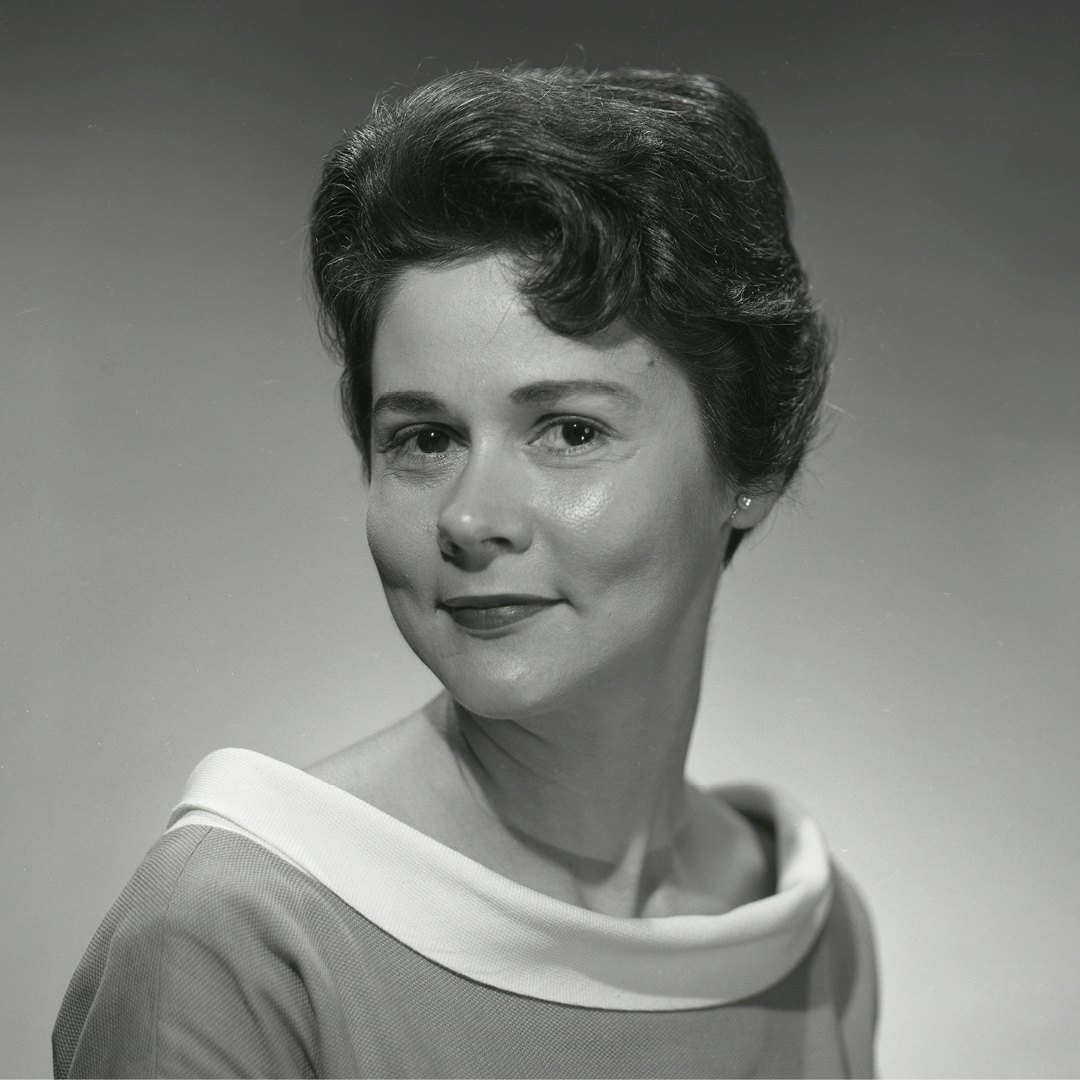

1927–2022
Anita Kerr

“Anita Kerr helped Nashville achieve world-class stature as a music center through her roles as a gifted arranger, producer, and leader of the lush vocal quartet the Anita Kerr Singers. At a time when women rarely led recording sessions, she worked alongside key producers Chet Atkins and Owen Bradley, and was intimately involved in shaping the hits of Eddy Arnold, Skeeter Davis, Brenda Lee, Jim Reeves, and many more that gave the world the enormously popular Nashville Sound. Her voice and her creativity expanded the artistic and commercial possibilities for country music.”
—Kyle Young, CEO
Country Music Hall of Fame and Museum
Portrait of Kerr from 1956 by Walden S. Fabry, courtesy of the Country Music Hall of Fame and Museum
Anita Kerr
b. Memphis, Tennessee, October 13, 1927; d. October 10, 2022
Anita Kerr was one of the most influential vocal and instrumental arrangers in the early evolution of the Nashville Sound. Her group, the Anita Kerr Singers, became a staple on countless recordings, helping to broaden country music’s market in the wake of the commercial threat posed by rock & roll.
Born Anita Jean Grilli to an Italian family who ran a Memphis grocery store, Kerr started piano lessons at age four. Later she played pipe organ and prepared vocal arrangements for the St. Thomas Church choir in Memphis. By age fourteen, she was leading the Grilli Sisters vocal group. They performed on her mother’s radio show, and Kerr herself became a singer, pianist, and organist on Memphis radio station WREC.
In 1948, Kerr moved to Nashville and started a singing group for WSM’s Sunday Down South radio show. Her big break came when her group, the Anita Kerr Singers, provided a featured vocal part on Red Foley’s 1950 crossover hit “Our Lady of Fatima.” She became a regular on the Grand Ole Opry’s Prince Albert Show and led her eight-voice group for Decca Records recording sessions. In June 1956, the ensemble was invited to appear on Arthur Godfrey’s Talent Scouts (CBS-TV), necessarily shrinking down to a quartet: Kerr, Dottie Dillard, Louis Nunley, and Gil Wright.
By the late 1950s, Kerr was supplying vocals for many labels. She assisted on hits such as Decca artist Bobby Helms’s “My Special Angel” (#1 country; #7 pop, 1957) and RCA Victor star Jim Reeves’s “He’ll Have to Go” (#1 country, #2 pop, 1959).
Starting in 1961, Kerr became Chet Atkins’s recording assistant at RCA sessions, working as a vocal group leader, arranger, and occasional producer for Reeves, Eddy Arnold, Hank Snow, Willie Nelson, Floyd Cramer, and others on the RCA roster. She also recorded sides of her own as Anita & th’ So-and-So’s.
Tired of technical record-producing tasks—for which she received scant credit—Kerr resigned in 1963. Her later, non-country career was launched by a move to California, where she wrote soundtracks for Rod McKuen’s poetry readings and cut albums with her group. In about 1970, Kerr and her husband, Alex Grob, moved to his native Switzerland, where they opened their own recording studio in 1975. There, Kerr continued to compose, arrange, and write musical scores for feature films.
—Steve Eng
From the Country Music Hall of Fame® and Museum’s Encyclopedia of Country Music, published by Oxford University Press.
